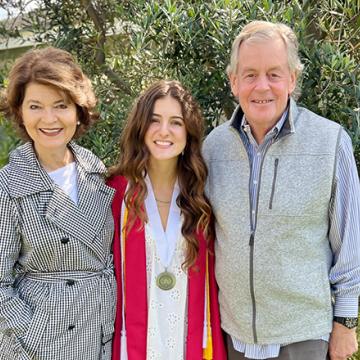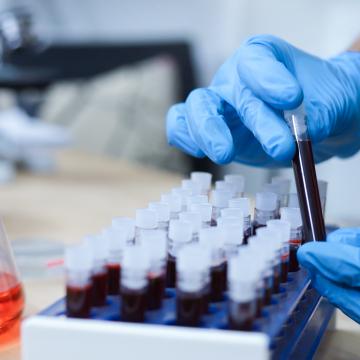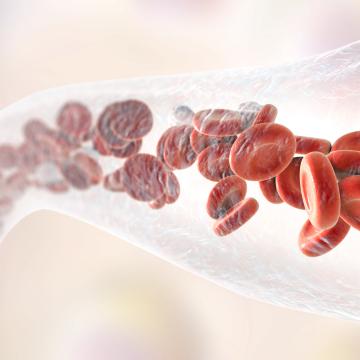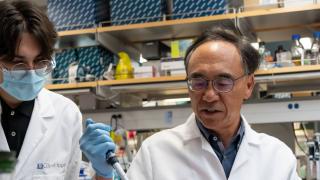
Hematologic Malignancies Research Institute
The institute is a matrix comprised of seven centers, each with a focus on a particular disease or treatment modality. Because the specific diseases can frequently be treated by multiple modalities, there is deliberate cross-pollination between the centers, with most faculty collaborating in research involving two or more centers.
City of Hope's Cellular Immunotherapy Center is finding new ways to harness the immune system to fight cancer by re-engineering patients' T lymphocytes to target and eradicate malignancy. Led by Stephen Forman, M.D., and Christine Brown, Ph.D., The Heritage Provider Network Professor in Immunotherapy, the researchers are discovering and applying new immunotherapies by genetically reprogramming T cells with chimeric antigen receptors (CARs) that tailor patients’ immune responses to their specific cancers. The Cellular Immunotherapy Center continues to build upon successful CAR T cell treatment platforms for hematologic cancers, an area that has been making headlines recently with new Food and Drug Administration approvals of CAR T cell therapies. The team is developing and clinically testing CAR-based treatments for leukemia, lymphoma, myeloma, as well as for solid tumors including brain, breast, prostate, liver and ovarian.
The Center for Gene Therapy, led by John Zaia, M.D., the Aaron D. Miller and Edith Miller Chair for Gene Therapy, is a world-class leader in research on stem-cell-based therapies and is dedicated to converting that research into real-world treatments and cures as rapidly as possible. The Center for Gene Therapy uses a patient’s own blood stem cells to introduce new genes or small noncoding RNAs that will combat and prevent cancer, HIV/AIDS, hemophilia and other deadly diseases. This highly specialized therapy is delivered in the City of Hope Alpha Stem Cell Clinic.
The Center for Stem Cell Transplantation uses leading-edge research to advance hematopoietic stem cell transplant methods. Our dedicated team, directed by Ryotaro Nakamura, M.D., is working to reduce treatment toxicity and improve patient outcomes. Our researchers have access to a large transplant patient population, rich historical data and a clinical department with a reputation for outstanding transplant outcomes for the past 14 consecutive years. Center research focuses on donor types, treatment complication such as graft-versus-host disease, cytomeglovirus vaccination and regimens designed to reduce the risk of relapse.
Directed by Saro Armenian, D.O., M.P.H., the goal of the Center for Survivorship and Outcomes is to improve the overall quality of life for survivors of hematological (blood, bone marrow and lymph node) cancers. The center incorporates novel real-time data collection on health outcomes during and decades after completion of therapy, allowing us to understand the short- and long-term health challenges faced by our survivors. This information is then used to inform clinicians on novel treatment strategies, risk stratification and long-term monitoring of our patients.
Led by Guido Marcucci, M.D., and Anthony Stein, M.D., the Gehr Family Center for Leukemia Research at City of Hope seeks to further expand and broaden our world-renowned work in the research and treatment of acute myeloid leukemia, acute lymphoblastic leukemia, chronic myelogenous leukemia, myelodysplastic syndrome and myeloproliferative neoplasms. The center focuses on discovering new actionable molecular targets, developing novel targeted therapies and immunotherapies and implementing these therapies in precision-medicine approaches.
The goal of the Judy and Bernard Briskin Center for Multiple Myeloma Research, directed by Amrita Krishnan, M.D., is to make multiple myeloma, and the related light chain amyloidosis, manageable nonlethal diseases. Center researchers are achieving this goal by aggressively pursuing and encouraging new research, developing improved treatments, and collaborating with myeloma and amyloid experts nationally and internationally.
Led by Larry Kwak, M.D., Ph.D., and Alexey Danilov, M.D., Ph.D., the Toni Stephenson Lymphoma Center advances patient-centered science and speeds discoveries to people who need cures now. It brings together renowned researchers, state-of-the-art facilities, novel studies and clinical trials under a central organization that facilitates scientific discovery.
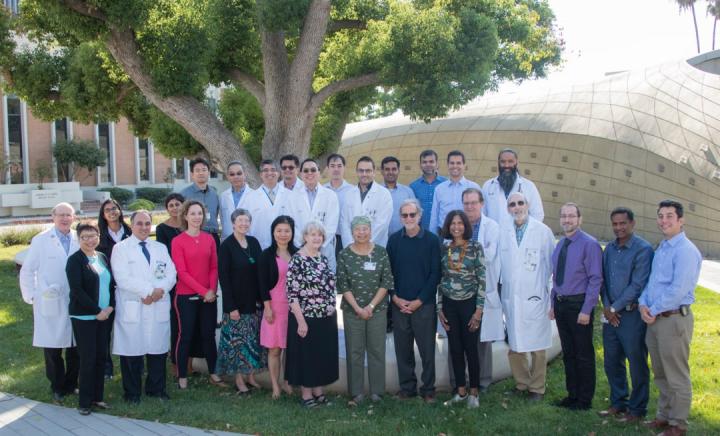
Hematologic cancers are those cancers that occur in cells of the immune system or in blood-forming tissues, including bone marrow and lymph nodes. As a pioneer in advancing care for all hematologic cancers and related blood disorders, City of Hope's Hematologic Malignancies Research Institute leads the field as one of the largest and most successful research and treatment centers for hematological malignancies in the world.
The mission of the institute is to bring pioneering research discoveries in hematological malignancies and stem cell transplantation to early-phase clinical trials of potentially practice-changing therapies.
The vision of the institute is to become one of the foremost research and clinical treatment centers for hematological malignancies and stem cell transplantation, making the best available therapies accessible to all patients.
Led by Stephen J. Forman, M.D., our dedicated, multidisciplinary team combines innovative laboratory research discoveries to develop novel clinical treatments that will improve outcomes for patients.
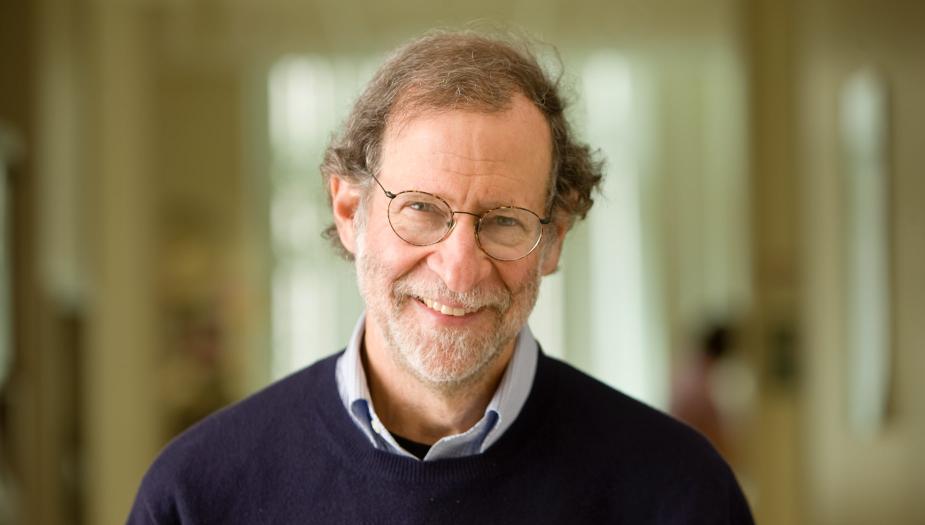
The mission of the City of Hope Alpha Stem Cell Clinic, part of the CIRM Alpha Stem Cell Clinic Network, is to accelerate stem cell-based clinical therapies in regenerative medicine, with a goal of transitioning new disease treatments into sustainable patient-care programs for the people of California.

